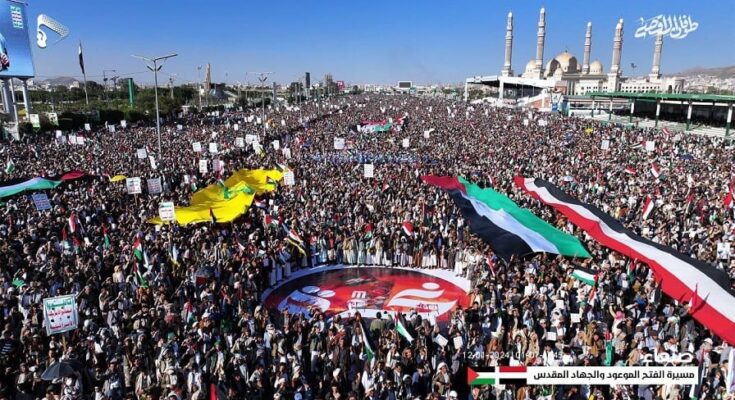
The Yemen-based Houthis have targeted a large number of Greek ships in the Red Sea since the Israel-Hamas war began in October 2023.
Figures released by the International Maritime Organization (IMO) show that between December 2023 and September 2024, the Houthis attacked 83 ships. Among these were 24 Greek trading vessels, roughly one in three.
IMO is the United Nations agency which is responsible for taking measures to improve the safety and security of international shipping and to prevent pollution from ships.
In the past 11 months, safety would be the last word to apply to the situation in the Red Sea. Since November 2023, the Iran-backed Houthis continuously conduct attacks on commercial ships transiting the Red Sea. Their actions disrupt international trade, put the civilian crews in grave danger, and threaten the freedom of navigation.
In late August, Houthis launched three unidentified projectiles west of the Yemeni port of Hudaydah that hit the Greek-flagged Sounion oil tanker carrying 150,000 tons of crude oil, leaving it without engine power, adrift in the Red Sea.
A French destroyer rescued the 25 members of the crew comprised of Filipinos and Russians, as well as four members of security, and took them to nearby Djibouti. However, the resulting oil spill has the potential to cause serious environmental damage.
Is Greece targeted because it has sided with Israel?
In December 2023, the Houthis threatened to attack any ships that they believed were heading to Israeli ports. However, many of their attacks both before and since have been against civilian ships.
Furthermore, they threatened to attack ships affiliated with the United States, United Kingdom and their allies. They would not target Chinese and Russian vessels and those of countries not connected to the war.
Since the beginning of the war between Israel and Hamas, Greece and the rest of the European Union has openly sided with Israel.
Greece and Israel have good diplomatic relations and consider each other allies. Israel collaborates in military, intelligence, and economic affairs and is the second largest importer of Greek products in the Middle East.
In addition, Greece is one of only three countries Israel has signed a Status of Forces Agreement (SOFA) with, the others being the United States and Cyprus. The agreement enables Greece and Israel to station military forces in each other’s territories as part of the military agreements and comprehensive security arrangements between the two countries.
It is possible then that Greek-flagged ships are targeted by Houthi jihadists who see the ally of their enemy as their own foe. Even though the Houthis claimed responsibility for the attack, they did not mention the Greece-Israel relations.
The Sounion oil tanker attack in August was the third in which a vessel operated by Athens-based Delta Tankers came under Houthi attack. The militants said Delta Tankers had violated their ban on “entry to the ports of occupied Palestine,” Reuters reported.
It is also possible that the strike against the Sounion tanker was coincidental. As Greek shipowners with 5,514 ships currently control approximately 21 percent of the global fleet, one in five vessels is Greek-owned. Furthermore, 31.78 percent of the world oil tanker fleet is Greek-owned.
Statistically speaking, it is plausible that retaliatory purposes are not the reason why the Houthis targeted Greek ships—specifically the 24 Greek-owned cargo ships out of the total of 83 ships targeted.



